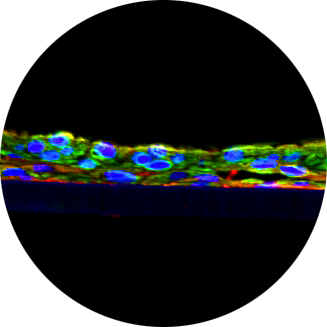Sensitivity Analysis and Quality Indicators for an In Vitro Oral Irritation Assay
- TR Number: 1055
- Authors: Robert Gutierrez, Blaza Toman, Yong Ma, John T. Elliott, and Elijah J. Petersen
- Materials Tested: MTT reagents, SDS, Y-4 polymer, high density polyethylene film, DPBS, saline, sesame seed oil
- Link to PDF: https://pubmed.ncbi.nlm.nih.gov/39132920/
Biocompatibility testing using in vivo tests is often one of the final evaluations of new dental materials. To reduce the likelihood of failure at this late stage, predictive biocompatibility testing using in vitro methods is needed. In this study, we describe a sensitivity analysis of an oral irritation test by evaluating changes in the viability, using the MTT assay, of 3-D models with EpiOral constructs as a case study. Experiments that tested sources of variability in the assay led to recommendations regarding the storage of the constructs after arrival, pipetting procedure, use of MTT reagents from different vendors, use of transepithelial electrical resistance measurements, and statistical analyses. A statistical
model was proposed to evaluate whether test substances yield a positive or negative result and the associated statistical confidence. Testing several test compounds such as the Y-4 polymer, that contains a known irritant, and dentally relevant substances such as sodium dodecyl sulfate (SDS) at varying concentrations revealed statistically significant results as expected. Lastly, a software app was designed to support a multiwell culture plate layout design. Overall, the findings and suggestions documented here will support the further development and potential standardization of this assay system and may be useful for the development of other assays using 3-D constructs.

